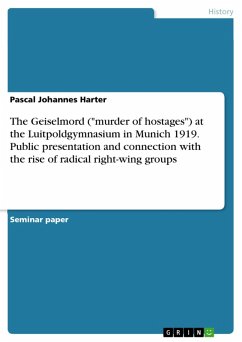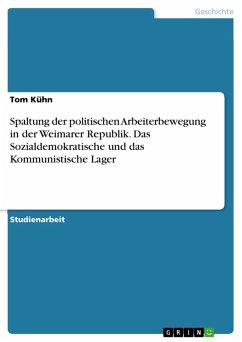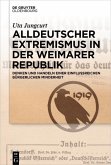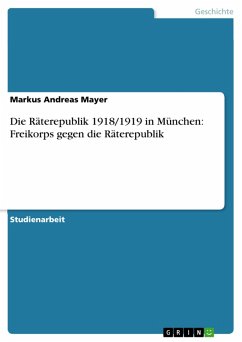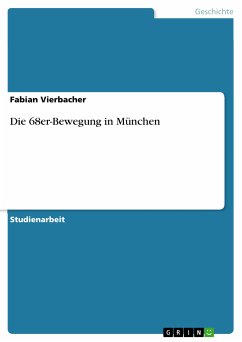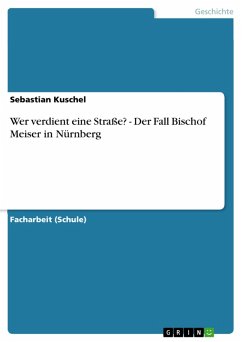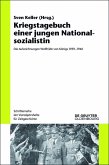Seminar paper from the year 2022 in the subject History of Germany - World War I, Weimar Republic, grade: 1,0, University of Heidelberg (ZEGK - Historisches Seminar), course: Proseminar: Die Anfänge der Weimarer Republik, language: English, abstract: This term paper is dedicated to the question of how the contemporary representations of the 'Geiselmord' by official bodies and in the press took place, and to what extent these corresponded to the actual events. Furthermore, it is of historical relevance to examine whether the public portrayal of this crime was deliberately instrumentalized, especially in connection with the strengthening of conservative-nationalist and right-wing radical groups and politics in Bavaria between May 1919 and March 1920. In the research literature, a more detailed treatment of the Geiselmord, usually in the context of the Munich soviet republics, their suppression and the strengthening of conservative- nationalist and radical right-wing groups and politics at the beginning of the Weimar Republic in Bavaria, has taken place especially since the 1960s. In the broader context, this increase in interest can be explained by a general shift in the focus of historiographical study at that time from the end of the Weimar Republic to its formative phase and the accompanying more critical examination of the dichotomous thesis, which had previously hardly been questioned, that the Reich and Länder (federal state) governments had no alternative, especially in their action against radical left-wing uprisings in defence of the parliamentary system against a soviet republic, also in terms of cooperation with the 'old elites' and right-wing groups, which had been prominently advocated by Karl D. Erdmann, among others. Early on, Marxist-Leninist historiography in the GDR also dealt with the Geiselmord in connection with the Munich soviet republics, but this either remained with regret about the inconsistent implementation of a revolutionary terror and relativizing comparisons of the number of victims with the subsequent 'white terror'. In contrast, Heinrich Hillmayr critically discussed the concrete events of the Geiselmord, the deeds of government troops and Freikorps, the question of responsibility for them and noted distortions in the public representation of the Geiselmord and their causes. Most recently, Eliza Ablovatski's comparison of the Munich and Hungarian soviet republics in 1919 is probably the most detailed examination of the consequences of the Geiselmord, which, according to her, played a key role in anti-Semitic and anti-Bolshevik propaganda based on a detailed analysis of contemporary media representation and social reception. Thus, in modern research on the political and social conditions in Bavaria in the early Weimar Republic, a significant role is attributed to the Geiselmord, even if the concrete evaluations sometimes diverge. In order to answer the question, the political development of the strengthening of conservative nationalist and radical right-wing groups and politics in Bavaria is first outlined. Then the actual historical event, the execution of ten prisoners in the Luitpoldgymnasium, will be reconstructed and this will then be contrasted with a selection of contemporary accounts of the Geiselmord by official bodies and in the press, whereupon the question of the political and social significance of this narrative will be examined. Finally, the results of this investigation and an outlook are summarized in the conclusion.
Dieser Download kann aus rechtlichen Gründen nur mit Rechnungsadresse in A, B, BG, CY, CZ, D, DK, EW, E, FIN, F, GR, HR, H, IRL, I, LT, L, LR, M, NL, PL, P, R, S, SLO, SK ausgeliefert werden.

